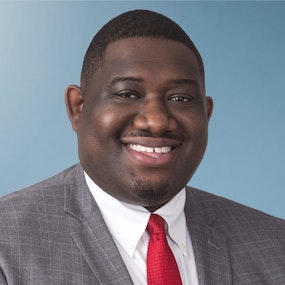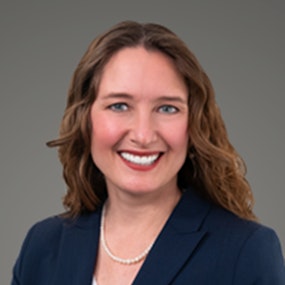ROBERT JOHNSON:
This is the award-winning Public Health Review Morning Edition for Friday, September 22, 2023. I'm Robert Johnson. Now, today's news from the Association of State and Territorial Health Officials.
GILLIAN STEELFISHER:
So first, I think these findings can help set expectations. There is fairly modest interest in the COVID-19 vaccine or RSV vaccine and a bit more interested in flu, particularly from older folks.
JOHNSON:
Dr. Gillian SteeleFischer with the Harvard Opinion Research Program says new polling about public interest in vaccines shows practitioners might have more success administering them together, rather than one at a time.
STEELFISHER:
We know from other work that folks who are interested in these vaccines mostly want to have them together, you know, at the same time and mentioning COVID doesn't turn people off the flu vaccine. So, health departments can provide coadministration. Promote them together, but lead with flu if you need to choose between them .That might help broaden the appeal of the vaccines.
JOHNSON:
Hear more about this work on the Wednesday edition of the newscast and read more about the polling using the links in the show notes.
Also today, clean and accurate data is critical to any public health effort. Dr. Jennifer Shuford with the Texas Department of State Health Services says better data is helping inform the campaign to reduce maternal mortality rates in the state.
SHUFORD:
What we did is made changes to our death certificate system to really make sure that the medical certifiers could input whether a woman was pregnant and then a way to confirm that as well, to make sure we were getting really good information from the death certificates. And then we added additional matching steps with other datasets and this just made sure that we have really sensitive and specific data.
JOHNSON:
Shuford says the changes seemed to be working.
SHUFORD:
So, knowing that obstetrical hemorrhage was the leading cause of death in these women in Texas, we prioritized that Patient Safety Bundle we rolled that out prior to the pandemic had some measurable benefit from that Obstetrical Hemorrhage Patient Safety Bundle.
JOHNSON:
Learn more about the Texas initiative by clicking the link in the show notes.
September is coming to a close and that means Congress is running out of time to avoid a government shutdown. Jeffrey Ekoma is here with the latest from Capitol Hill, in this week's View from Washington, D.C. report.
Jeffrey Ekoma, as usual, good to have you here on the newscast. How are you doing?
JEFFREY EKOMA:
I'm doing well. It's a pleasure to be back.
ROBERT JOHNSON:
Now that's not exactly the answer I thought I might get from you because a week from now, we don't really know if the government will have enough money to continue past September 30. What is the latest that you're hearing from Capitol Hill regarding that topic?
EKOMA:
Yeah, I mean, the threat of a shutdown increased a lot this week, as members of the House are slowly running out of options to reach a consensus on a bill that can pass both in the House and the Senate and subsequently signed into law by the President before the end of September. Now, there are various proposals being floated around in the House right now they're changing day to day. Members in the Senate have indicated their interest in sort of waiting to see what members in the House are going to do. And before they proceed any further, the issue is incredibly important right now, I will obviously continue to track and share more information as it becomes available. But if you're looking at a meter, that meter definitely ticked up a lot this week. So, we'll continue to track it and see what we can share some.
JOHNSON:
There's also another budget issue being discussed over in the Senate and a piece of legislation that could have an impact on public health. Can you fill in those details?
EKOMA:
Yes, we are monitoring a bipartisan bill before the Senate Health Education, Labor, and Pensions Committee, or HELP Committee, that seeks to boost funding for community health centers and grow the health care workforce. Now, while we have not expressed any specific concerns with the bill, we have participated in conversations with staff on the Hill to express our concern about a ... included within the bill that will utilize mandatory public health funding to pay for increased funding for community health centers, and the health care workforce. Specifically, the bill would utilize $980 million from the Prevention and Public Health Fund, which was established as part of the Affordable Care Act to improve our public health systems. The fund represents about 10% of CDC budget and funds the agency's work in epidemiology and lab capacity, tobacco control, immunization, and a couple of other things. It's a very critical issue for our members. So, we'll continue to monitor. Well, there was a hearing that happened yesterday. So, we'll be tracking the development of that hearing, and sort of what happens next, but we hope to share hopefully positive news that just particular pay for is removed from the bill hopefully soon.
JOHNSON:
And also, some positive news, hopefully a week from now, having to do with this whole potential shutdown. We will be keeping our fingers crossed. We'll see you then, Jeffery Ekoma. Thank you so much for joining us, have a great weekend.
EKOMA:
Absolutely, you too.
JOHNSON:
We'd also like to remind you to follow this newscast on your podcast player and ASTHO on social media. We're on LinkedIn, Twitter, and Facebook.
That'll do it for today. We're back Monday morning with more ASTHO news and information. I'm Robert Johnson. You're listening to the award-winning Public Health Review Morning Edition. Have a great weekend.







